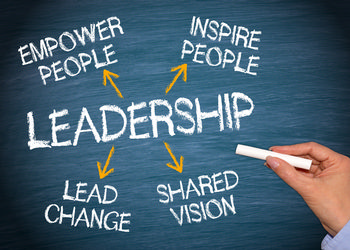Leadership Capacity - What's In Your Toolbox?

Leadership isn’t easy. The seemingly countless books, articles, talks, etc. are a testimony to the difficulty of the craft. Despite this deluge of information, many leaders miss the mark. Sure, they may be great managers — but that’s not leadership. It’s the classic case of ‘what got you here won’t make you successful here’. Leadership is a personal endeavor — there are many types of leadership and the plethora of different styles reflects that it’s not one size fits all. What worked for another leader may not be appropriate for your personality, style or experience. Leadership doesn’t always entail being in charge— impact without official authority is a unique form of leadership.
What is leadership anyway? The standard dictionary definition — “the action of leading a group of people or an organization” — seems a bit too stark. Leadership is a nuanced, multi-dimensional pursuit that requires an increased capacity to deal with constantly changing complexity — both what lies immediately in front of us and well ahead of us. Consequently, this necessitates continual learning and adaptation to your unique style. Being an effective leader requires a distinct orientation that it is a journey not a destination — that is, being a student of leadership versus an achiever of leadership.
What happens along this learning journey? Operating in this context of change and complexity requires a shift in emphasis from competency to capacity. Developing this additional capacity — the aggregation of various individual capabilities is frequently overlooked, or downplayed, as it falls under the emotional intelligence’ umbrella. Strengthening or adding managerial competencies (e.g., planning, budgeting, supervising) isn’t going to yield a more effective leader. What makes leaders compelling is building and enhancing the individual capabilities that add to their capacity (e.g., empathy, presence, humility).
What are the underlying capabilities that enable increased capacity for leadership? Attempting to capture an all-inclusive list of these critical leadership capabilities is a subjective exercise at best. However, there is a number that is difficult to refute:
-
Empathy – the ability to understand and share the feelings of another
-
Candor – being unreserved, open and honest in expression
-
Presence – the state of existing, occurring or being present in a place or thing
-
Authentic – genuine, fact-based, accurate, reliable
-
Inclusive – broad in orientation or scope; including everyone
-
Humility – freedom from pride or arrogance; a modest or low view of one’s importance; humbleness
-
Trustworthy – able to be relied on; honest or truthful; worthy of confidence
-
Discernment – being able to grasp and comprehend what is obscure
-
Character – the mental, ethical and moral qualities distinctive to an individual
-
Servant – focuses primarily on the growth and well-being of people and the organizations/communities to which they belong
It’s difficult to prioritize these capabilities or make the case that one is more important than another – many are intertwined. Instead, effective leaders typically apply a blend of these capabilities as the circumstances and individuals necessitate. The concept of increased leadership capacity – the aggregation of these capabilities – is perhaps most attuned to the metaphor of a toolbox. The leader utilizes those capabilities most appropriate in any given situation and continually seeks to add new tools to the toolbox.
Undoubtedly, there are other capabilities essential to effective leadership. What else would you add?
Scott Campbell is a leadership coach with a penchant for working in partnership with individuals and teams to navigate their career journey and reach their highest potential. Scott leverages 35 years of professional experience spanning management consulting, product design and academia to build trust and share astute, candid perspectives relevant to each client’s unique needs. He provides informed support to help clients achieve their objectives, remove obstacles that stand in their way and become more effective leaders – in whatever way that takes meaning for them. You can find him on the Alumni Career Coach Directory.
Contributing Writer(s): Scott Campbell



